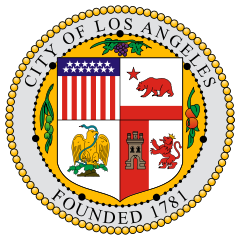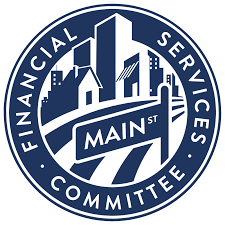October 3, 2019 •
US District Court Finds New York Donor Disclosure Rules Unconstitutional
On October 1, the U.S. District Court for the Southern District of New York ruled state laws enacted in 2016 requiring disclosure of donors to tax exempt organizations to be invalid. In Citizens Union of the City of New York, […]
On October 1, the U.S. District Court for the Southern District of New York ruled state laws enacted in 2016 requiring disclosure of donors to tax exempt organizations to be invalid.
In Citizens Union of the City of New York, et al., v. Attorney General of the State of New York, the U.S. District Court found provisions in the state’s ethics laws requiring entities exempt from federal taxation under 26 USC §§501(c)(3) and 501(c)(4) to publicly report donors under certain circumstances to be unconstitutional.
The district court found the disclosure of funding sources requirement for 501(c)(3) entities making an in-kind donation over $2,500 to a 501(c)(4) entity engaged in lobbying violates the First Amendment because it chills speech and burdens donors’ rights to free association and privacy.
The district court also struck down the rule requiring 501(c)(4) to publicly disclose donors if the entity makes a public statement that refers to the position of an official regarding any potential legislation.
The second provision was found to intrude on donors’ right to express opinions anonymously.
August 7, 2018 •
FEC Disclosure Regulation Invalidated by Court for Being Too Narrow
On August 3, a federal court ruled a campaign finance disclosure regulation, followed for decades by the Federal Election Commission (FEC), failed to uphold disclosure requirements required by a federal statute. Chief Judge Beryl A. Howell of the United States District […]
 On August 3, a federal court ruled a campaign finance disclosure regulation, followed for decades by the Federal Election Commission (FEC), failed to uphold disclosure requirements required by a federal statute. Chief Judge Beryl A. Howell of the United States District Court for The District of Columbia issued an order, in CREW v. FEC, vacating 11 C.F.R. §109.10(e)(1)(vi), but stayed the vacatur for 45 days to give time for the FEC to issue interim regulations comporting with the statutory disclosure requirements of 52 U.S.C. §30104(c). The court also has allowed the FEC 30 days to change an earlier FEC dismissal to conform with the court’s ruling.
On August 3, a federal court ruled a campaign finance disclosure regulation, followed for decades by the Federal Election Commission (FEC), failed to uphold disclosure requirements required by a federal statute. Chief Judge Beryl A. Howell of the United States District Court for The District of Columbia issued an order, in CREW v. FEC, vacating 11 C.F.R. §109.10(e)(1)(vi), but stayed the vacatur for 45 days to give time for the FEC to issue interim regulations comporting with the statutory disclosure requirements of 52 U.S.C. §30104(c). The court also has allowed the FEC 30 days to change an earlier FEC dismissal to conform with the court’s ruling.
The case originated because of independent expenditures made in a 2012 Ohio senate race by the non-political social-welfare nonprofit Crossroads Grassroots Policy Strategies (Crossroads GPS), an affiliate of the American Crossroads Super PAC. Crossroads GPS did not report donors when reporting its independent expenditures, while it acknowledged receiving contributions over $200, arguing the donors did not donate funds directly tied to any specific reported expenditure, as the FEC interpreted 11 C.F.R. §109.10(e)(1)(vi) to require. Non-political committees making independent expenditures over $250 in a calendar year must comply with disclosure obligations closely analogous to those imposed on political committees.
The vacated regulation required the identification of each person who made a contribution in excess of $200 to the person filing a disclosure report, including for non-political 501(c)(4) non-profits entities making independent expenditures, if the contribution was made for the purpose of furthering the reported independent expenditure. The court found the regulation, as construed and applied by the FEC, did not require the disclosure of donors, absent the donor’s express agreement that the funds be used for the specific expenditures reported to the FEC, even though the donor may otherwise support and in fact contribute for the purpose of funding those expenditures. The court found the regulation impermissibly narrows the mandated disclosure in 52 U.S.C. §30104(c)(2)(C), which requires the identification of such donors contributing for the purpose of furthering the non-political committee’s own express advocacy for or against the election of a federal candidate, even when the donor has not expressly directed that the funds be used in the precise manner reported.
On July 16, the U.S. Treasury Department and the IRS announced certain tax-exempt organizations will no longer be required to report the names and addresses of contributors on their annual reports. This exemption from reporting will apply to tax-exempt organizations […]
 On July 16, the U.S. Treasury Department and the IRS announced certain tax-exempt organizations will no longer be required to report the names and addresses of contributors on their annual reports.
On July 16, the U.S. Treasury Department and the IRS announced certain tax-exempt organizations will no longer be required to report the names and addresses of contributors on their annual reports.
This exemption from reporting will apply to tax-exempt organizations generally not receiving tax-deductible contributions, such as labor unions, volunteer fire departments, issue-advocacy groups, local chambers of commerce, veterans’ groups, and community service clubs, according to the department’s press release.
These organizations are still required to continue to collect and keep the donor information and to make it available to the IRS upon its request.
This change does not affect the information required to be reported by charities primarily receiving tax-deductible contributions, such as 501(c)(3) organizations, certain nonexempt private foundations, or 527 political organizations.
The Treasury Department and IRS gave three primary reasons for the change: the IRS makes no systematic use of this information collected by these organizations; the new policy will reduce the risk of inadvertent disclosure or misuse of confidential information; and the new policy saves both private and government resources.
The revised reporting requirements apply to information on returns for taxable years ending on or after December 31, 2018 and becoming due on or after May 15, 2019.
February 23, 2018 •
US House Bill Seeks to Regulate Presidential Inaugural Committee Spending
A bill introduced this month in the U.S. House of Representatives would require presidential inaugural committees to file disbursement reports with the Federal Election Commission. The initial report would be due 90 days after the date of the presidential inaugural […]
 A bill introduced this month in the U.S. House of Representatives would require presidential inaugural committees to file disbursement reports with the Federal Election Commission. The initial report would be due 90 days after the date of the presidential inaugural ceremony, with subsequent reports due not later than 60 days after each date by which the committee makes disbursements in an aggregate amount of $100,000 or more.
A bill introduced this month in the U.S. House of Representatives would require presidential inaugural committees to file disbursement reports with the Federal Election Commission. The initial report would be due 90 days after the date of the presidential inaugural ceremony, with subsequent reports due not later than 60 days after each date by which the committee makes disbursements in an aggregate amount of $100,000 or more.
House Resolution 5008 also prohibits committees from disbursing funds for purposes unrelated to the inauguration of the president. If any leftover funds of the committee remain available at the time of the termination of the committee, the committee must donate those funds to a 501(c)(3) of its choice.
Rep. Kurt Schrader, who introduced the legislation, said in a press release, “We have laws that regulate campaign finance and political action committees. But there is nothing on the books to dictate how money for the presidential inaugural committee, which is raised under the name of the president of the United States, can or cannot be spent. That’s wildly unacceptable.”
December 20, 2017 •
Los Angeles, California Ethics Commission Adopts Recommendations to Amend Lobbying Ordinance
On December 19, the Los Angeles, California Ethics Commission approved a set of recommendations requiring more disclosure from lobbyists, which will go to City Council for approval. The recommendations require lobbyists to disclose direct communications with city employees by specifying […]
 On December 19, the Los Angeles, California Ethics Commission approved a set of recommendations requiring more disclosure from lobbyists, which will go to City Council for approval.
On December 19, the Los Angeles, California Ethics Commission approved a set of recommendations requiring more disclosure from lobbyists, which will go to City Council for approval.
The recommendations require lobbyists to disclose direct communications with city employees by specifying the date of the communication, the employees title, division, and agency.
Additionally, the recommendations expand the current registration exemption for 501(c)(3) organizations.
September 11, 2017 •
Campaign Finance Riders in House Financial Services Appropriations Bill
Several provisions added last week to the House Financial Services appropriations bill would alter some federal campaign laws. The legislation would prevent some charitable 501(c)(3) organizations such as churches from losing their tax-exempt status for making contributions to candidates. The […]
 Several provisions added last week to the House Financial Services appropriations bill would alter some federal campaign laws.
Several provisions added last week to the House Financial Services appropriations bill would alter some federal campaign laws.
The legislation would prevent some charitable 501(c)(3) organizations such as churches from losing their tax-exempt status for making contributions to candidates. The bill would also allow corporations greater latitude in soliciting employees to contribute to political action committees.
The riders to the bill also include provisions prohibiting the IRS from enacting rules governing political activity and prohibiting the SEC from implementing rules requiring corporations to report to its shareholders a corporation’s political campaign activities.
A further change to campaign finance law in the appropriation bill would bar the use of funds to recommend or require any entity submitting an offer for a federal contract to disclose specified political contributions as a condition of submitting the offer.
The appropriations and other finance bills are expected to be debated this and next week in the House.
President Trump signed an executive order today for the purpose of allowing religious institutions to engage more directly in political activity without losing their tax-exempt status. Federal law prohibits tax-exempt religious and charitable institutions from specifically supporting, opposing, or endorsing […]
 President Trump signed an executive order today for the purpose of allowing religious institutions to engage more directly in political activity without losing their tax-exempt status.
President Trump signed an executive order today for the purpose of allowing religious institutions to engage more directly in political activity without losing their tax-exempt status.
Federal law prohibits tax-exempt religious and charitable institutions from specifically supporting, opposing, or endorsing political candidates or risk losing their tax-exempt status. Today’s order, named the Presidential Executive Order Promoting Free Speech and Religious Liberty, does not address charitable institutions covered under the same federal law.
The executive order directs the Department of the Treasury to “not take any adverse action against any individual, house of worship, or other religious organization on the basis that such individual or organization speaks or has spoken about moral or political issues from a religious perspective, where speech of similar character has, consistent with law, not ordinarily been treated as participation or intervention in a political campaign on behalf of (or in opposition to) a candidate for public office by the Department of the Treasury.” The order defines “adverse action” as “the imposition of any tax or tax penalty; the delay or denial of tax-exempt status; the disallowance of tax deductions for contributions made to entities exempted from taxation under section 501(c)(3) of title 26, United States Code; or any other action that makes unavailable or denies any tax deduction, exemption, credit, or benefit.”
Additionally, the order directs the Secretary of the Treasury, the Secretary of Labor, and the Secretary of Health and Human Services to “consider issuing amended regulations, consistent with applicable law, to address conscience-based objections to the preventive-care mandate promulgated under” the Affordable Care Act.
February 27, 2017 •
Supreme Court Affirms, Without Written Opinion, Lower Court’s Ruling Regarding Campaign Finance Disclosure
Today, the United States Supreme Court affirmed electioneering communication disclosure requirements under the Bipartisan Campaign Reform Act (BCRA). In Independence Institute v. FEC, the Supreme Court affirmed, without a written opinion, a lower court’s summary judgement against Independence Institute, a […]
 Today, the United States Supreme Court affirmed electioneering communication disclosure requirements under the Bipartisan Campaign Reform Act (BCRA).
Today, the United States Supreme Court affirmed electioneering communication disclosure requirements under the Bipartisan Campaign Reform Act (BCRA).
In Independence Institute v. FEC, the Supreme Court affirmed, without a written opinion, a lower court’s summary judgement against Independence Institute, a Colorado based 501(c)(3) tax-exempt organization. Independence Institute argued the BCRA’s disclosure requirements for electioneering communications were overbroad and violated the First Amendment.
Electioneering communication is defined as any broadcast, cable, or satellite communication referring to a clearly identified federal candidate, made within 30 days of a primary election or 60 days of a general, special, or runoff election, and targeted to the relevant electorate.
On November 3, 2016, the U.S. District Court for the District of Columbia had rejected the Independence Institute’s challenge to the BCRA’s electioneering communication provisions and granted the Federal Election Commission’s motion for summary judgment.
Applications for tax-exempt status of charities filing under section 501(c)(3) of the tax code are now quicker and easier for as many as 70 percent of all applicants, says the IRS. According to an IRS press release, organizations with gross […]
 Applications for tax-exempt status of charities filing under section 501(c)(3) of the tax code are now quicker and easier for as many as 70 percent of all applicants, says the IRS.
Applications for tax-exempt status of charities filing under section 501(c)(3) of the tax code are now quicker and easier for as many as 70 percent of all applicants, says the IRS.
According to an IRS press release, organizations with gross receipts of $50,000 or less and assets of $250,000 or less are eligible to use a new three-page application form. The standard form is 26 pages.
IRS Commissioner John Koskinen said, “It didn’t matter if you were a small soccer or gardening club or a major research organization. [The standard form] process created needlessly long delays for groups, which didn’t help the groups, the taxpaying public or the IRS.” According to the IRS, the new shorter form will “speed the approval process for smaller groups and free up resources to review applications from larger, more complex organizations while reducing the application backlog.”
There is a concern groups not having true charitable purposes may use the tax-exempt status to make political contributions without having to reveal the original source of the funds. In a TIME magazine article published July 13, Koskinen dismissed the idea that “if someone has been forced to do more paperwork they’re going to be less nefarious.”
State and Federal Communications, Inc. provides research and consulting services for government relations professionals on lobbying laws, procurement lobbying laws, political contribution laws in the United States and Canada. Learn more by visiting stateandfed.com.


